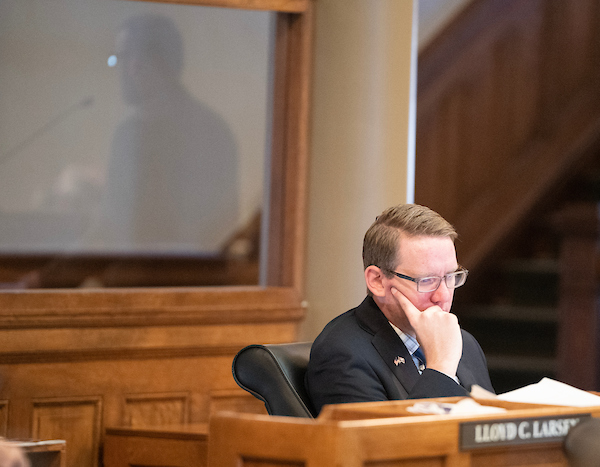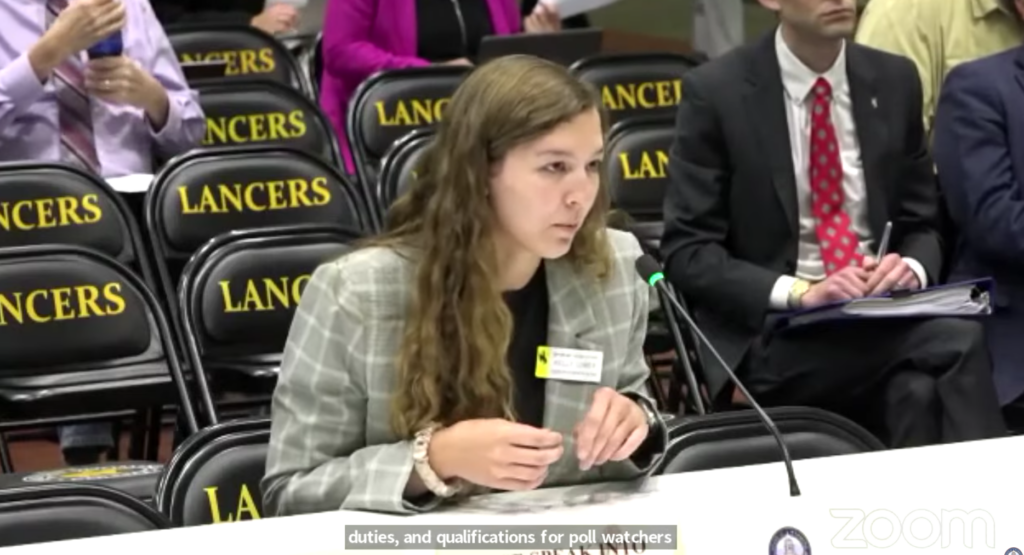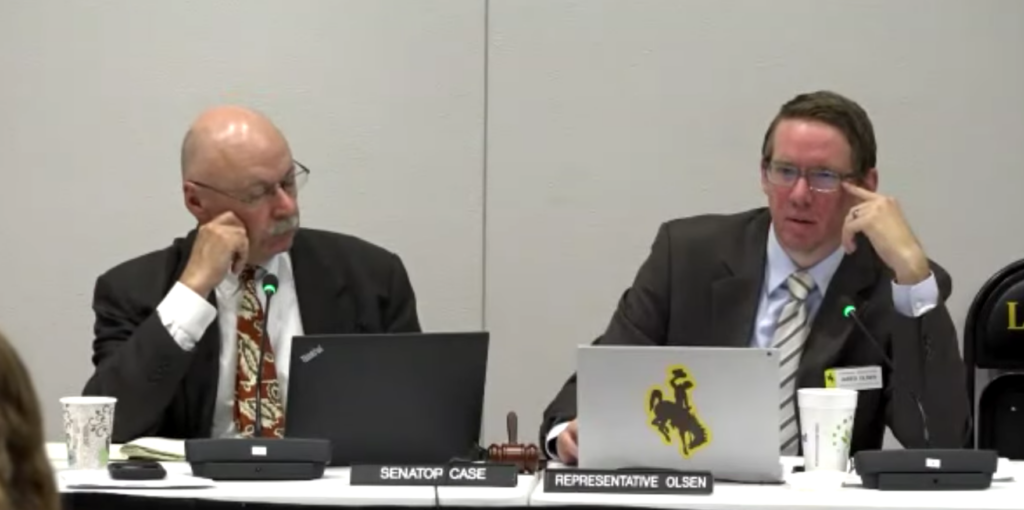Felony or Misdemeanor for Voter Intimidation?
Lawmakers discuss neighboring states’ policy on poll watchers, elector intimidation
- Published In: Politics
- Last Updated: Aug 29, 2023

Rep. Jared Olsen (R-Cheyenne) sits in the House Chambers in January in Cheyenne. Olsen serves as the co-chairman of the Joint Corporations, Elections and Political Subdivisions committee, which met last week. (Photo by Michael Smith)

By Carrie Haderlie
Special to the Wyoming Truth
In Wyoming, it’s a felony for poll watchers to intimidate or harass voters.
However, that harsh punishment may chill prosecutorial efforts to tackle issues when they arise, according to some lawmakers. In most neighboring states, voter intimidation by a poll watcher is a misdemeanor offense.
Sen. Cale Case (R-Lander) said at a Joint Corporations, Elections and Political Subdivisions meeting that a Lander woman, who had previously testified before the committee, said she was intimidated while trying to vote.
“That is pretty serious,” Case, the committee co-chairman, said at Thursday’s meeting. “I don’t know if it has ever happened before, or if it is a matter of degree, or of how often poll watchers get admonished. I think it is something we should take seriously.”
Further noting that Wyoming is the only state in the region, including Colorado, Idaho, Montana, Nebraska, South Dakota and Utah, to include a felony charge for intimidation, Case said perhaps lawmakers should add misdemeanor penalties for voter intimidation to state law.
“Wyoming has strong laws,” Case said. “Like many of our strong laws, I am guessing the prosecutor never decides to go down that route.”

What is a poll watcher?
Rep. Jared Olsen (R-Cheyenne), the committee co-chairman, said the committee requested clarification of Wyoming law on poll watchers and elector intimidation from the Legislative Service Office following a May 30-31 committee meeting. Included in those meeting minutes was a discussion of “complaints of poll watchers interacting with voters at the polls,” without specific details.
Kelly Lower, associate research analyst for the Legislative Service Office, prepared a memo on the topic for the committee and presented it Thursday.
“In general, poll watchers are appointed by a political party, candidate or an issue committee to ensure their party, candidate or committee receives a fair chance at winning an election,” Lower said.
Poll watchers serve a role across the country in protecting election transparency, Lower said. Wyoming and its surrounding states have specific terminologies and qualifications for poll watchers. Some states specify who may or may not fill the role. For example, a candidate whose name is on the ballot cannot be a poll watcher.
“States usually require poll watchers to be registered voters in the state, and some require them to be registered in the county in which they are observing an election,” Lower said, adding that the number of watchers may be limited at a polling location.
“Poll watchers are generally prohibited from disrupting the election process, intimidating or harassing voters, interfering with the counting of ballots, writing down any ballot numbers or any personally identifying information, taking photographs or videos of the elections process,” Lower said.

Several federal laws, she continued, prohibit elector intimidation by any person, including poll watchers.
“Briefly, it’s a crime to intimidate, threaten or coerce any person for the purpose of interfering with their right to vote, whether the threat may be carried out or not,” she said.
Olsen said he agreed that “if [Case] think[s] prosecutors are chilled from taking any action because it is a felony as opposed to a misdemeanor, it seems like it would be a pretty easy thing to put into our statutes.”
Case continued that some conduct, although improper, may not arise to the level of a felony.
“Rather than [replacing] the felony, we take a look at that a bit more to derive a misdemeanor, with the felony for very serious intimidation,” he said. “Maybe that would be a way to go forward.”
Case said the committee would seek further input from the state’s county clerks on how to implement current regulations and any potential changes to state law.













